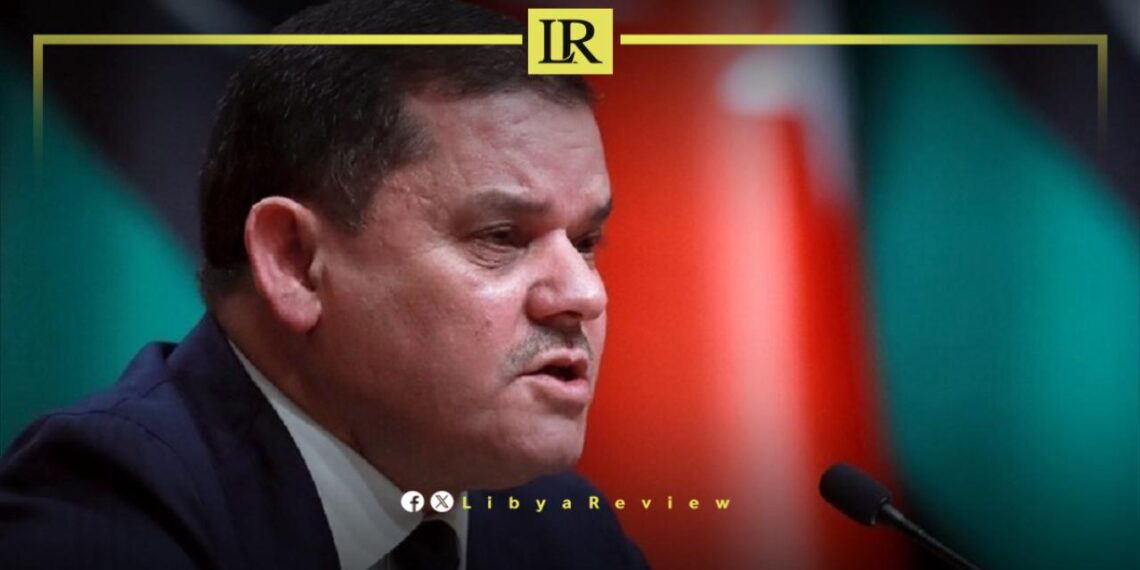A recent report by the US magazine ‘The National Interest’ has cast a critical spotlight on Abdul Hamid Dbaiba, Libya’s Prime Minister of the interim Government of National Unity.
The report accused Dbaiba of destabilizing the country in a desperate attempt to maintain his grip on power. Described as the political figurehead of one of Libya’s wealthiest business families, Dbaiba has managed to survive the country’s numerous upheavals, but his recent actions have raised serious concerns both domestically and internationally.
Over the past three weeks, Dbaiba has taken steps that have alienated key militias, which are crucial to his power base, and provoked the international community that provides him with political legitimacy.
According to the report, Dbaiba might believe that he can unify Libya’s rival factions and increase his government’s share of the country’s resources, thereby strengthening his authority. However, the report suggests that these actions may simply be desperate attempts to buy time and prevent his ouster, as he tries to portray himself as being in control of the situation, hoping that circumstances will eventually work in his favor.
Dbaiba’s government has made vague promises to hold elections before the anniversary of Libya’s February 17 revolution. Meanwhile, the eastern-based Libyan government has committed to supporting elections only after forming a broader national unity government.
Last month, Dbaiba took bold steps that disrupted Libya’s political balance and provoked strong reactions, making it more difficult to restore stability. Among these actions was his effective takeover of the Central Bank of Libya, an effort to secure a larger portion of the national budget and gain access to the country’s foreign reserves. Additionally, Dbaiba has tried to unify Libya’s leadership structure and impose his authority over the militias in Tripoli, aiming to reassure his political allies and the public that he is still in control.
In a further effort to consolidate his power, Dbaiba’s close ally, Mohamed al-Mnifi, who serves as the head of the Presidential Council, delivered a speech on August 18 during the “Armed Forces Day.” In his speech, al-Mnifi called for the unification of the militias, aligning with Dbaiba’s agenda.
On August 23, Dbaiba established a High Security Arrangements Committee, led by Interior Minister Emad Al Trabelsi. Trabelsi quickly issued an order for all militias to vacate government buildings within 24 hours. These moves demonstrate Dbaiba’s attempts to solidify his control over Tripoli and bring the militias under his authority. However, the report questions whether he will succeed, given the persistent challenges facing his government.
Abdul Hamid Dbaiba’s tenure as Prime Minister has been fraught with controversy and accusations of power grabs as he navigates Libya’s complex and volatile political landscape. His actions, particularly his attempts to centralize power and control key financial institutions, have alarmed both domestic and international observers.
Libya remains deeply divided, with rival governments in the east and west, each supported by various militias and international players. Dbaiba’s recent actions have only added to the tension, complicating efforts to achieve national reconciliation and stability.


